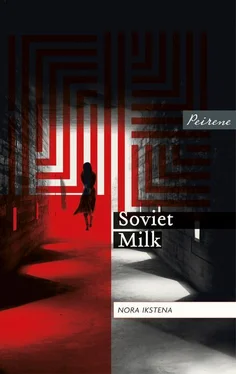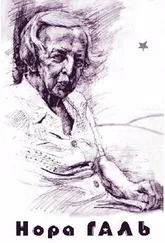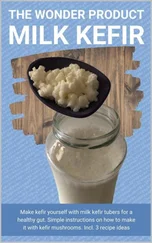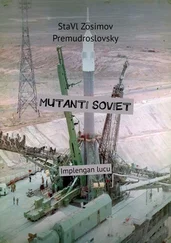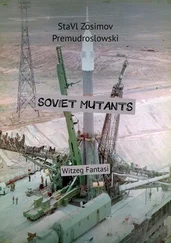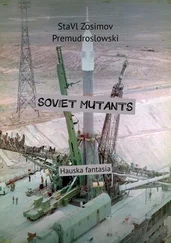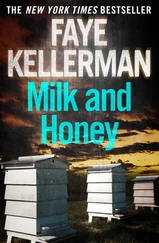*
At least nine years had passed since the felling of the young spruce trees. I was one of the best students so I was given a part in the school’s devised montage for assembly. I had to hold a very large letter ‘M’, and together with my classmates we formed the statement: ‘ Mi za mir!’ – ‘We’re for peace!’ Each morning a clean, freshly ironed apron lay ready for me, and my mother would do my hair so that it either hung in plaits down my back or was looped up and pinned behind my ears. She cherished me. One day a tall, kind-looking man appeared in our flat. My mother said, ‘This is your stepfather.’ When he left that evening, I saw my mother crying for the first time. She was sitting in our long, narrow kitchen, which looked out onto the courtyard, a simmering pan full of pumpkin scenting the air from the wood stove.
She looked up and said, ‘Your dear papa was taken away because he tried to save his dear spruce trees. Did he have to do that? Had he not run out, had he not tried to stop them, he would still be with us. But he loved the forest and his spruce trees, and he did run out. He was beaten up and taken away. I looked for him for three days. I found him at Šķirotava station, locked up in the carriage that would take him to Siberia. Disfigured by his wounds and very weak, he reached through the bars and gripped me tightly, until a guard saw us and whacked his hand with a rifle butt, catching mine in a glancing blow at the same time. I heard no more from your papa after that. Not a word, not a sign. Until someone from far away brought the news that he had died. That was five years ago. Dead, dear child, your dear papa.’
I don’t remember sadness. I remember my mother’s tearful voice, every word spoken with such tenderness: dear child, dear papa, dear spruce trees. I liked my handsome stepfather. I didn’t – I couldn’t – remember my father.
Then one afternoon at the kiosk not far from school – the one with the automat selling carbonated water, which I was categorically forbidden to buy, though it was what I most longed for – a tall, portly man appeared and said he was my father. I burst into tears and ran home as fast as my legs would carry me. There I found my mother as white as a sheet. He was not dead: he had returned.
*
I don’t remember any occasions when my mother took me to school or waited to pick me up after lessons. This was always done by my step-grandfather, who had adopted her. We used to walk along Gorky Street, a tribute to the legendary Russian writer, refreshed by the fragrance of hops floating over from Barbusse Street, which was named for a French writer. These brief walks spoke to me of peace and home.
I wasn’t afraid of Uncle Sam, or of nuclear war; I was afraid of my mother. Sometimes a demonic force seemed to possess her, compelling her to destroy everything around her, especially the love of those she held dearest. At these times she hated her mother, hated her stepfather even more, and hated the fact of her own birth. She would lock herself in the bathroom and howl, while I stood paralysed at the far end of the corridor, her howls shuddering through my young bones, her suffering infinite and incomprehensible, a railing against the injustice of fate, against the inexplicable wreck of a life.
Those moments of great darkness were relieved by occasional rays of light. We would sit in the living room with the windows open. Savoury cooking smells and children’s voices at play would come drifting in. My mother would be drawing with coloured pencils on a large sheet of paper: a depiction of a birth. I was sitting in her lap, and I wasn’t afraid. First she drew a smiling baby in a mother’s tummy, then she drew the baby’s head peering out between the mother’s legs – the grimace on the baby’s face reflected the suffering and horror awaiting her out here. Then she drew the mother and baby joined only by their umbilical cord, and the scissors that would cut the cord. And then she drew the mother with the infant in her arms, gazing at her with tender, frightened eyes. I followed my mother’s pencil strokes. Her hand was small and white with broken nails, her palms dry and cracked from constant washing and the talcum powder which had to be shaken into her rubber gloves. I sat in my mother’s lap; I wasn’t afraid. I leaned over and pressed my cheek against her hand.
*
My mother resolved to have no regrets. She married my stepfather, who adopted me and loved me like his own daughter. We never talked about my real father. My mother also never learned about my visits to my father, which continued for many years. Already gravely ill on his return from deportation, he lived in a communal flat in what had previously been the pantry. It was permanently damp and the floor was covered with newspapers. He was always drunk.
In his more sober moments, he would recall his years as a student at the University of Latvia, his research into forest plantations and his aversion to fraternities. He remembered his own mother used to dress him up as a young nobleman and call him Zhano. ‘You, my daughter, have blue blood,’ he would claim, for his father was not the Dobele town shoemaker whom his mother had married but a German baron. My father was one of the silent legion who could never adjust to Soviet reality. He did not live to see the deaths of Brezhnev and Andropov, nor the advent of Gorbachev or the Baltic Way to freedom.
Having witnessed my father’s physical suffering, I decided to become a doctor. I’m not sure I loved him. Sometimes I felt sorry for him. Sometimes I hated him because I suspected that his self-destructive gene was deeply implanted in me and that with time it would grow and strengthen, no matter how hard I fought it.
I remember the day my father died very well. Another tenant answered the door: the warm-hearted Jewish woman, who had often treated me to sticky glazed pretzels. Sobbing, she held me close against her soft, crocheted shawl. Then she led me to my father’s room.
There he was – emaciated, gaping. Two days after his death, the others in the flat had broken through his door.
Beneath him, on the stained day bed and all over the floor, newspapers displayed the faces of smiling workers and stern Politburo members. He was lying among words that promised five-year growth in a single year and extolled the superior morality of the people who were building Communism. It was they who had demanded the construction of new cities in distant Siberia, where thousands of innocents were sent to die without learning the nature of their crimes. He was lying among words advocating the diversion of rivers, the conversion of churches into storehouses for mineral fertilizers, and the destruction of the literature, art and sculpture of our Latvian heritage.
Thus he lay: one of the many who had surrendered quietly, dying in an obscure corner because he could not adjust and swallow humiliation, shame, dishonour and disillusionment. Discarded on the waste heap of our times. Most likely he was buried in a common grave for the homeless on the outskirts of the city. My mother showed no interest in him and never learned of his death. She protected her new life and in doing so did her best to protect me.
*
My grandmother and step-grandfather were the closest thing I had to parents. My mother stood somewhere outside the family. Our lives revolved around her; we depended on her – but not for maternal nurturing. Now and then, her struggles with her demons and angels would spill over into our daily routine, forcing us to acknowledge the fragile boundary between life and death. Worried, we would stay up, waiting for her to return home. And every time she came in we would sigh with relief, despite not knowing what the next day or night would bring. Not one of us knew much about my father. My grandmother thought it likely that they’d met at a country dance, which she had forced my mother to attend. Her pregnancy had come after that. This was all we knew. But I fantasized about that meeting.
Читать дальше
